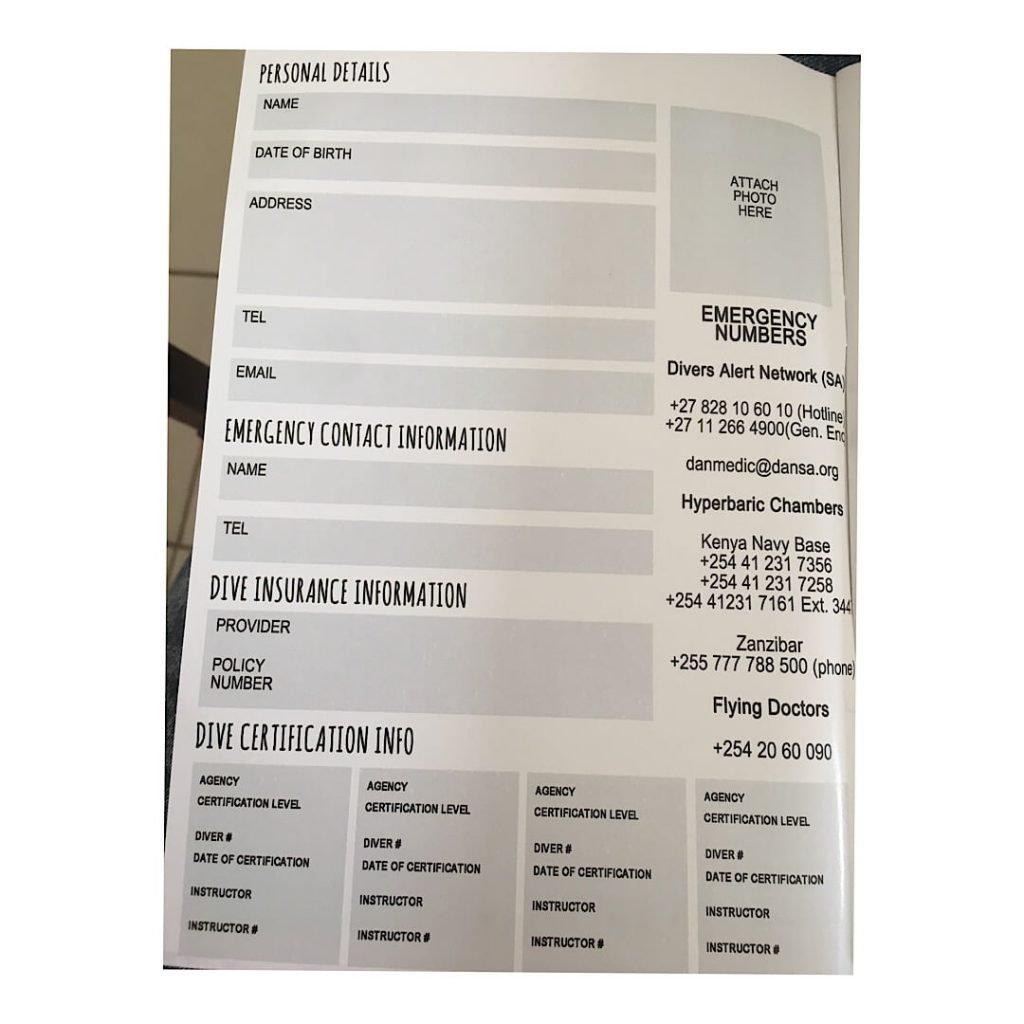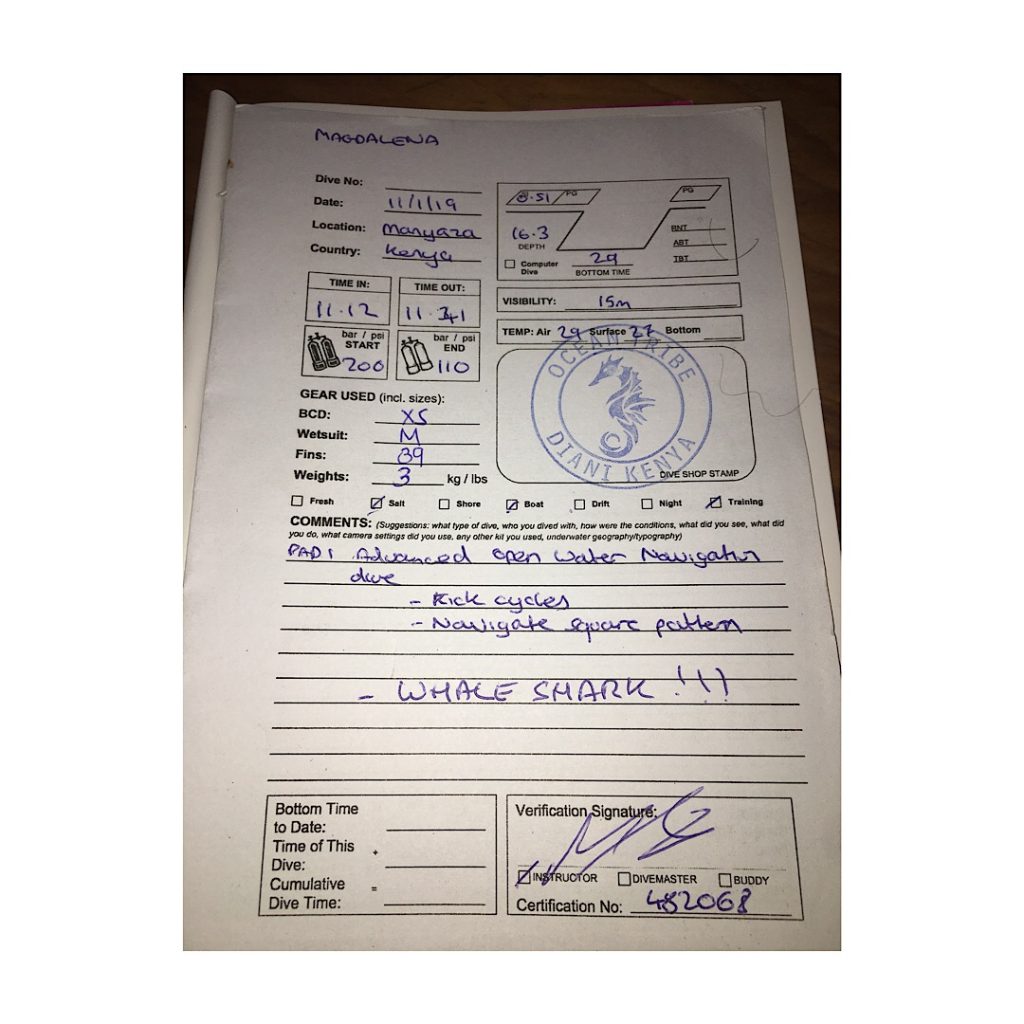Keeping a dive log is one of the most important thing for a dive adventure and for the documentation of your dive trips. it is more important for professional divers to log their dives than it is for recreational divers, however recreational dives are still advised to keep a logbook record. For a professional diver a log book will be important for when they are seeking employment.A diver can either log their dives in a book that is provided to them by the company that certifies them or use online apps to do so. Most or all of these apps are linked to ones dive computer. My PADI Club is one of the best apps (https://my.padi.com/#!/login); Divemate( https://www.divemate.de/) . Different dive shops have different layouts for their dive log books but there are common contents you’ll find in every log book that is; Personal details, dive number, dive location, type of dive and the conditions, equipment used, comments and verification.
Keeping a log book updated after every dive is important, not only for the sake of dive journey but also your safety and that of the people you are diving with. Safety is one of the most important rules of Scuba diving. In the case of an accident which often unlikely your dive log can provide the necessary information to help know the factors that led to the accident. Keeping a log book will help you monitor your progress as a diver and help you know when you are ready to move to the next level of your scuba diving profession, this is because in PADI Scuba diving you have to attain a specific number of dives to move from one level of your Scuba diving profession to another; for example for a PADI Rescue diver to become a PADI Dive master one needs to have 60 logged dives or more. You therefore have to show the logged dives when you apply to another level of your diving career.
As a diver you have to ensure that your dive log book is always signed and verified by either your instructor or dive buddy, after every dive.






















